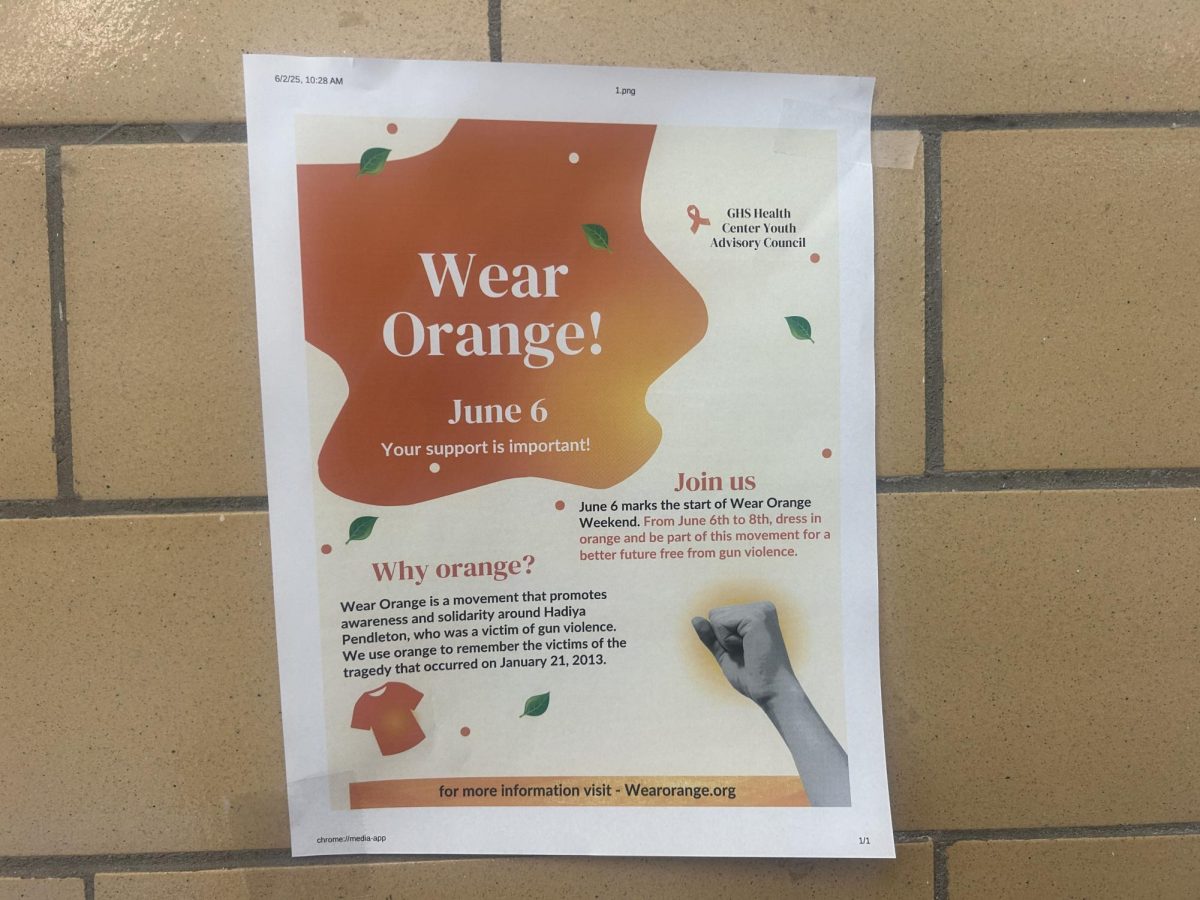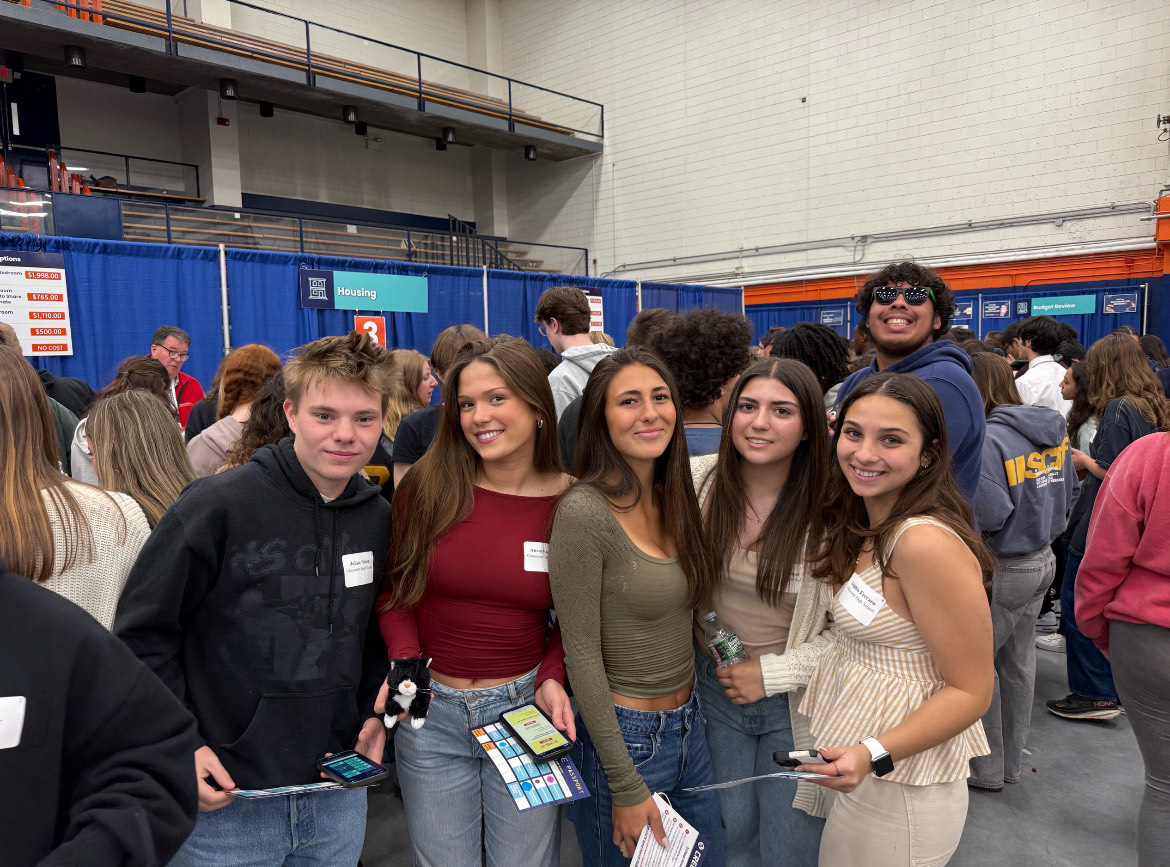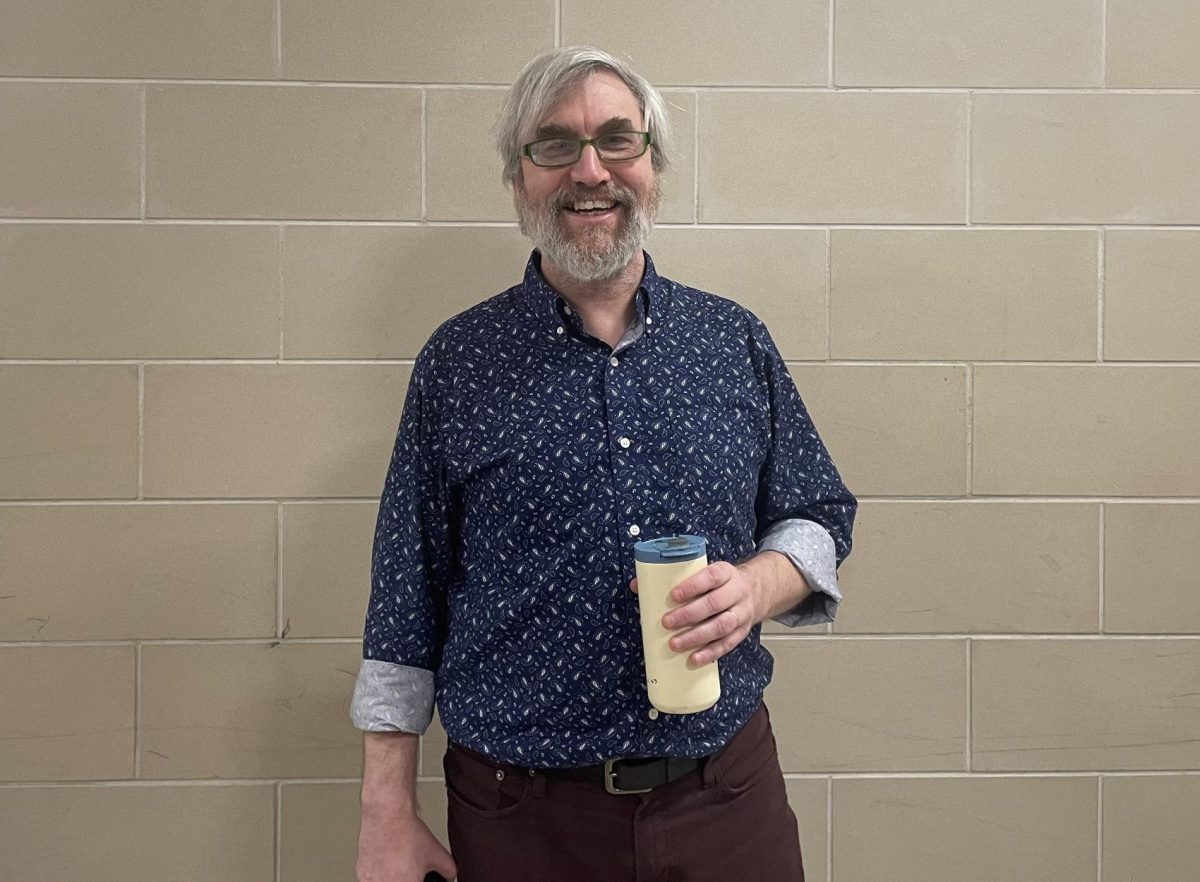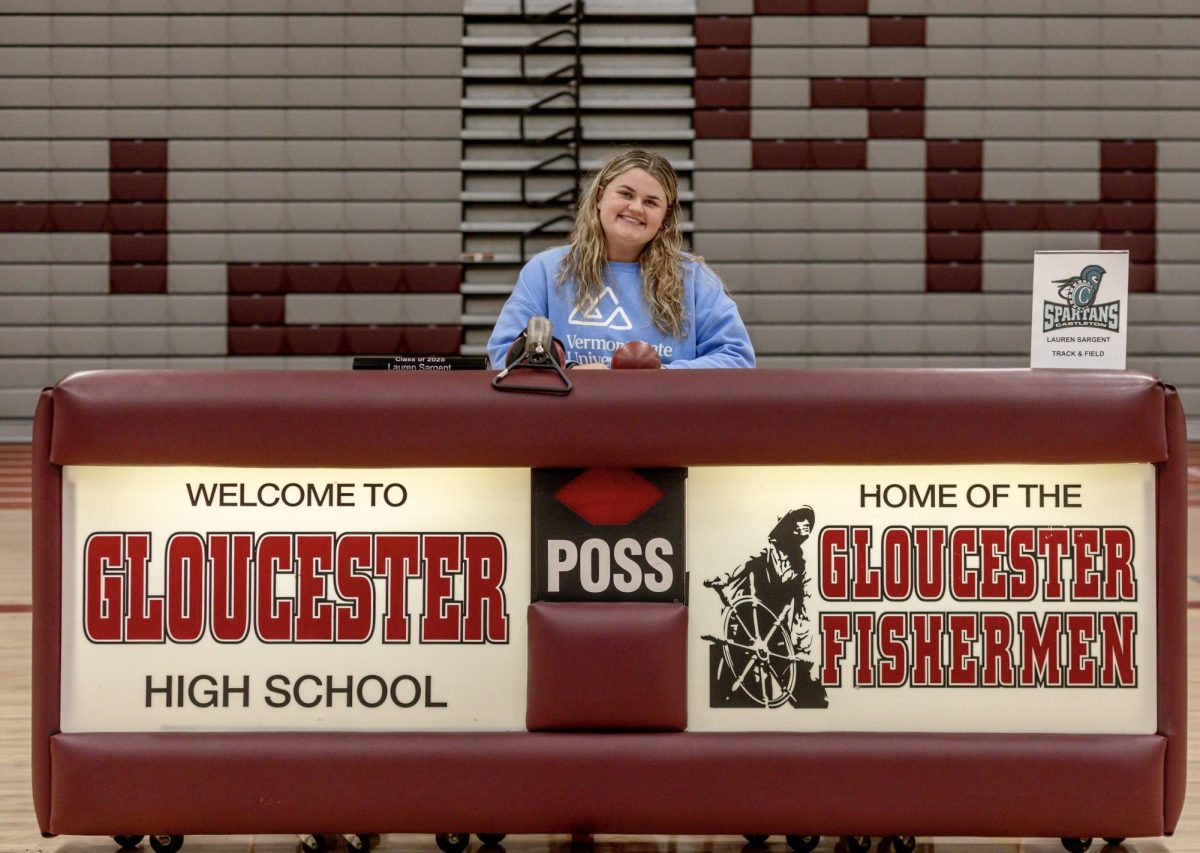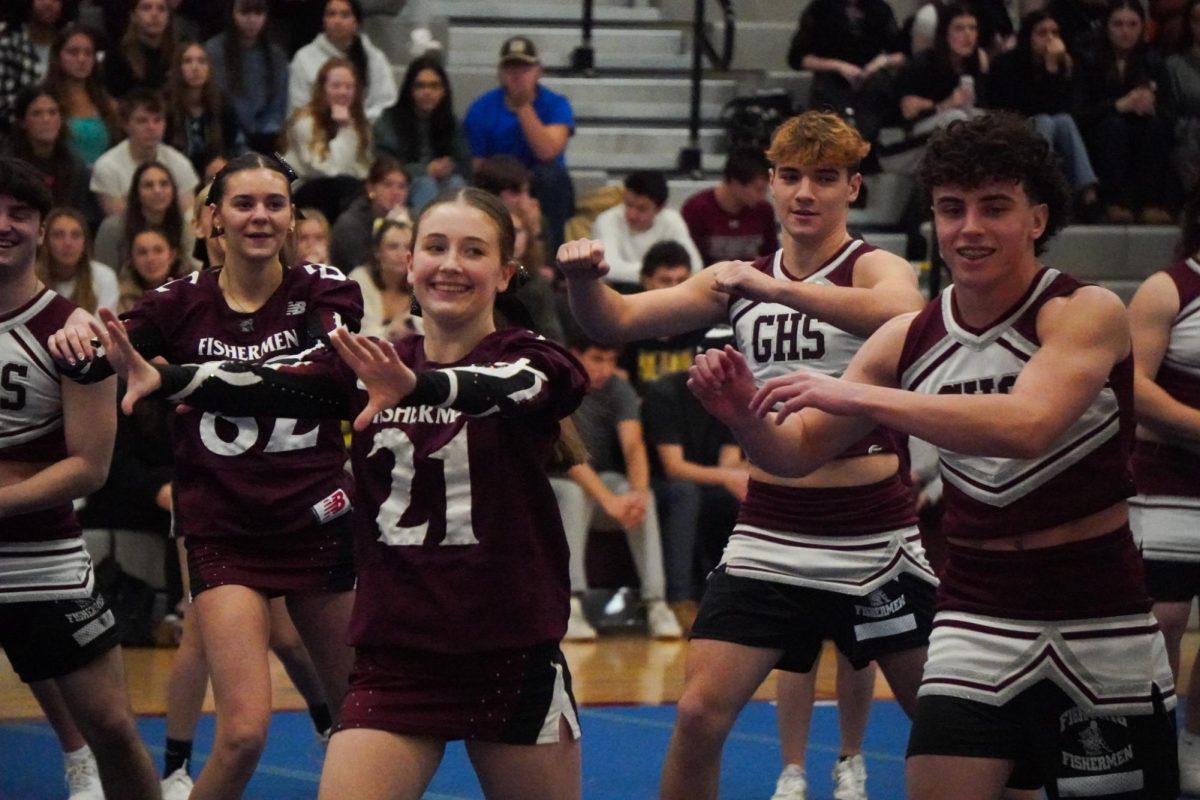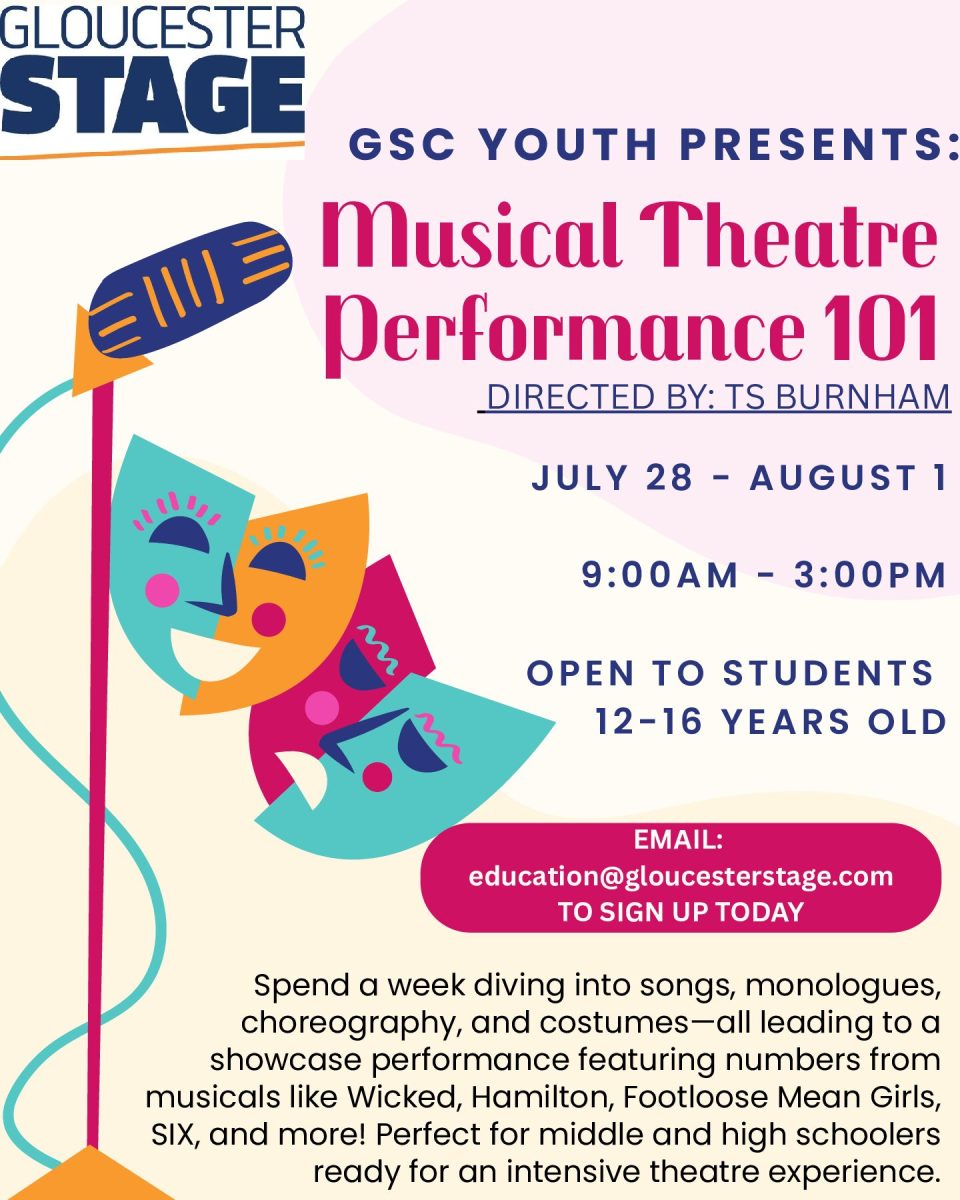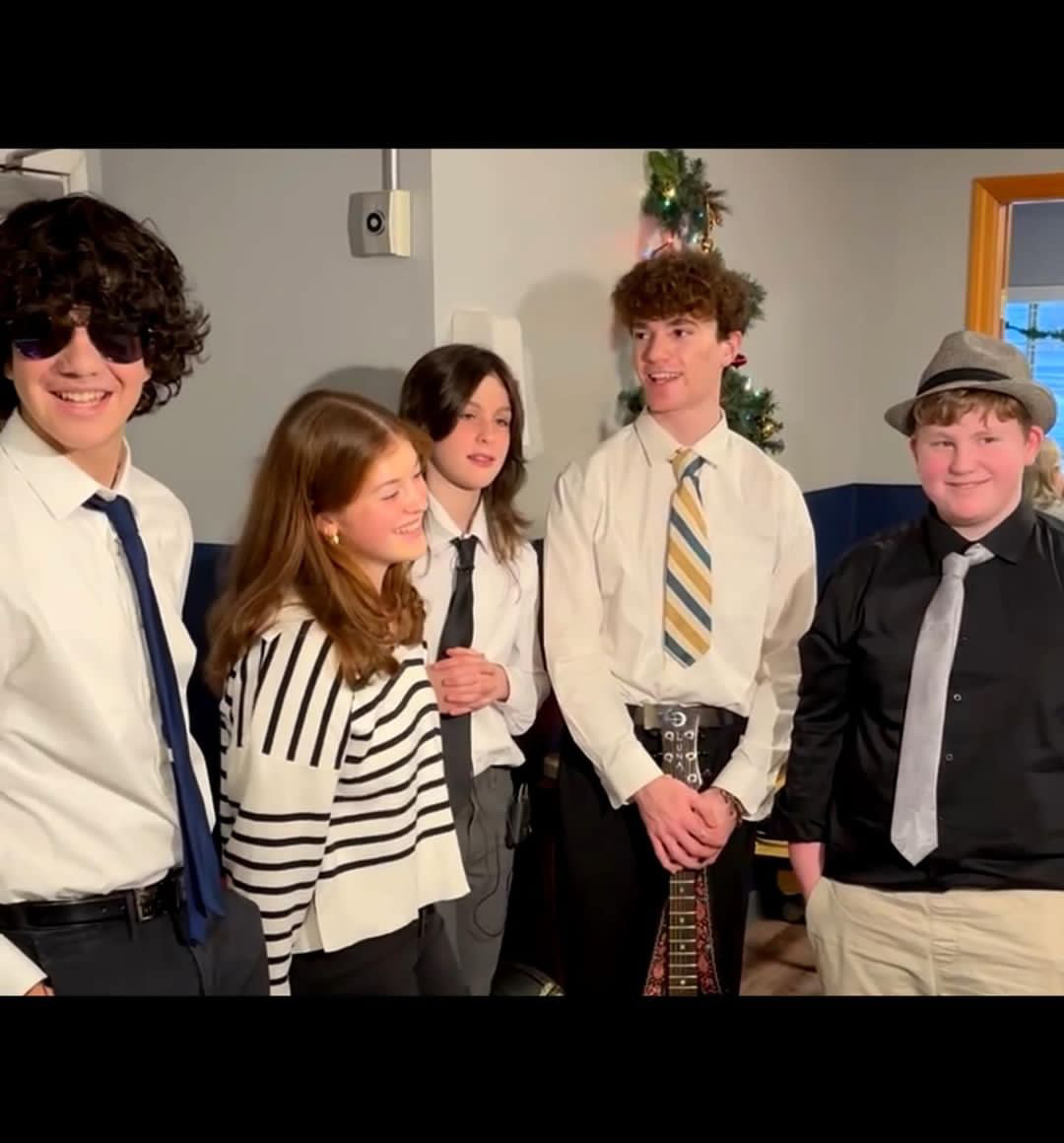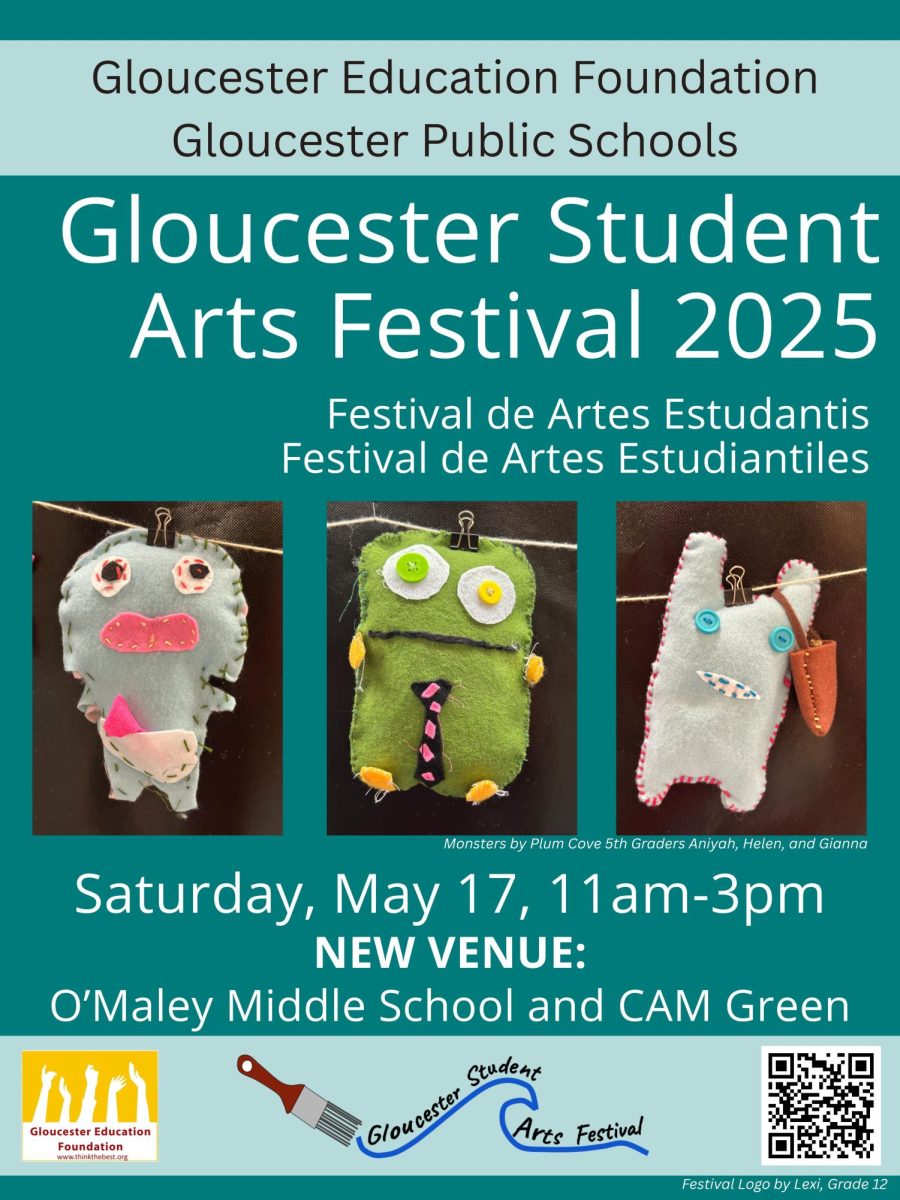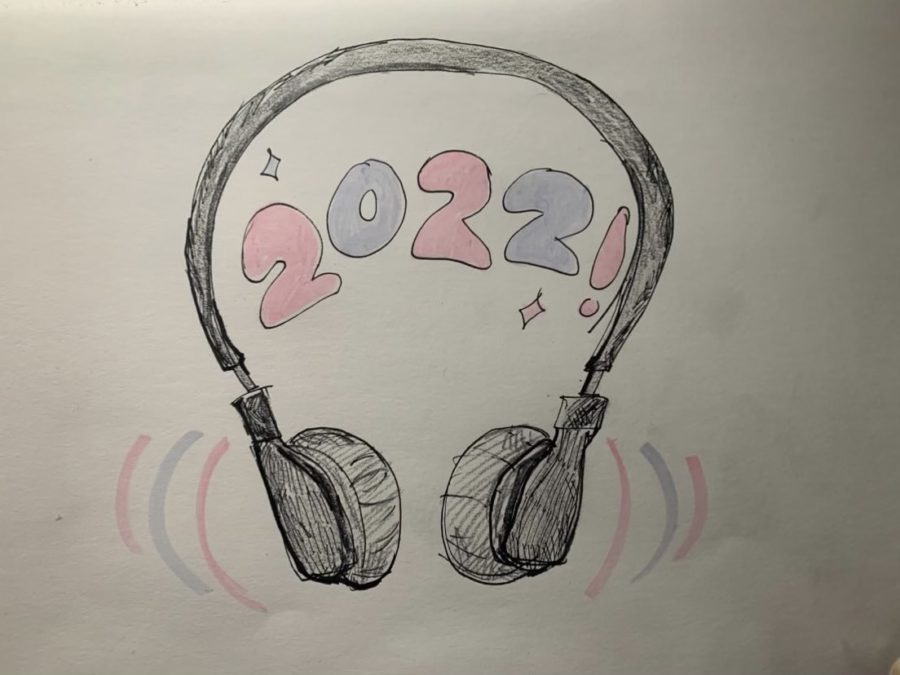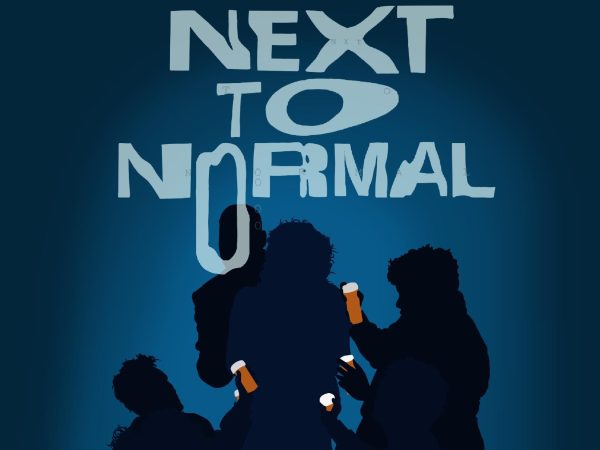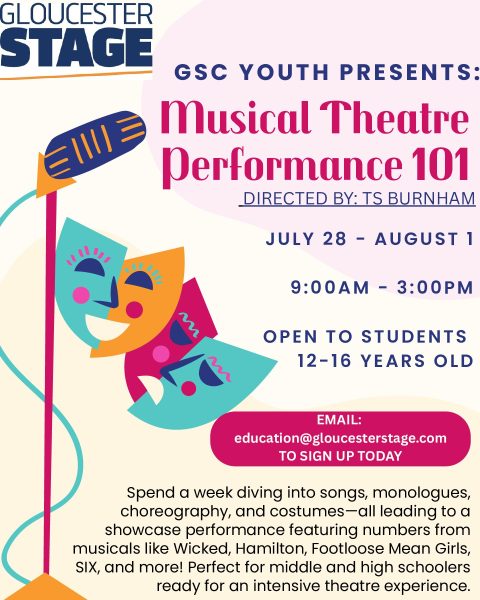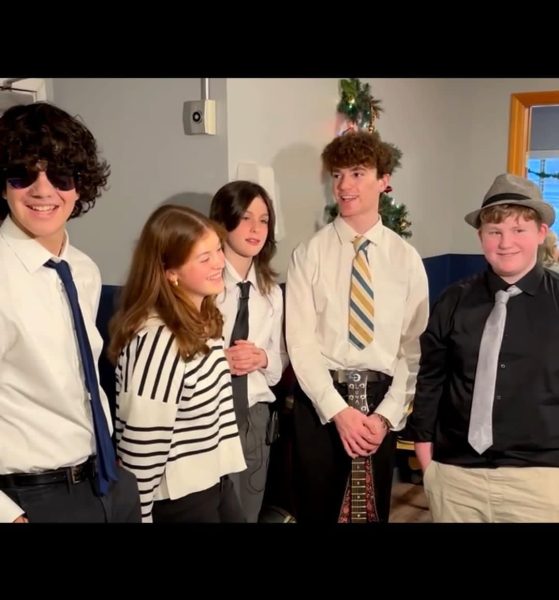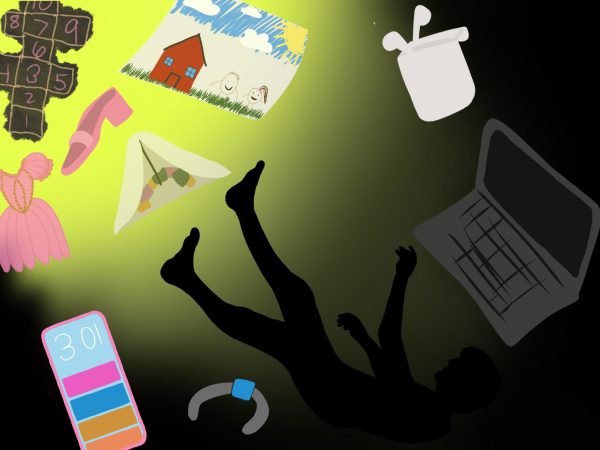The Gillnetter’s top five albums of 2022
Cyan Clements depicts headphones blaring with the music that defined 2022.
2022 will be remembered as the year many of us emerged from the pandemic, in some cases unrecognizable from the people we were at its onset. As society settles into a new normal, the music of this year serves as a bridge between pre- and post-Covid life—embracing and repudiating a world that’s much stranger than it appears. We’ve found and lost love, partied away problems, and pondered our place in the universe. We’re human, after all. It’s what we do.
In a year full of outstanding releases, some stood out as the most forward-thinking, exquisitely produced, and beautifully written. These five albums are rich, meaningful, and enjoyable on every level. More importantly, they prove that no matter what this planet throws at us, we’ll be able to create art that keeps us moving onward.
“Being Funny in a Foreign Language” – the 1975
“Being Funny in a Foreign Language” escapes the gritty maximalism of its predecessors, instead favoring groovier, ambient beats. Their subject matter shifts here as well, with lead singer Matty Healy’s trademark diatribes against modernism replaced with sober reflections on what it really means to love each other. And it’s beautiful: honest and poignant and hilarious and self-deprecating in a way only the 1975 could pull off.
“Confidence is comical,” Healy declares on the opening line of “Happiness.” Within the album’s context, it’s clear he means this in the best, most sincere way. Buoyant anthem “I’m In Love With You” earns its place among the greatest, cheesiest love songs of all time (as well as a spot on every millennial’s wedding playlist for the next five years).
With the 1975, though, nothing is ever quite as it seems. A subtle nihilism permeates the tracklist, as if the band has calmed down only to watch the world end before their eyes. “Do you think I have forgotten? / About you” Healy repeats in “About You,” as tension builds in the background guitars. He’s pleading, not asking—as if a connection between two people might really be stronger than the whole universe.
“The Car” – Arctic Monkeys
Today’s other massively popular British pop-rock band, Arctic Monkeys, takes a different approach. Love, like everything else, should be questioned, torn apart, and reassembled. In the minds of Arctic Monkeys, we may simply inhabit a Matrix-esque reality where any given object is part of some malignant scheme. This idea makes for an album rich with insight, offering some of the year’s most intriguing and amusing lyrics.
“The Car” is more spectacle than anything else. Opener “There’d Better Be A Mirrorball,” recalls a midcentury noir with its grandiosity. It’s immediately followed by “I Ain’t Quite Where I Think I Am,” which melds 70’s-style disco with a baroque-pop coating, moving the setting from a dance floor to a concert hall in one musical flourish. The juxtaposition has to be intentional: it’s found up and down the tracklist, demanding the listener’s attention with each sonic shift.
All the while, frontman Alex Turner is fashionably bored with the world, self-important but also self-aware. He’s not so much a singer as a narrator, twisting sentences with a voice that’s both biting and perceptive; and alluding to some vague, perhaps metaphorical, confrontation. “But now the orchestra’s got us all surrounded / And I cannot for the life of me remember how they go,” he drawls on Big Ideas, a subdued yet climactic moment of dissonance. What comes next? If you asked Turner, he’d probably answer that it’s better left unsaid.
“Once Twice Melody” – Beach House
Dream-pop duo Beach House returned with another set of psychedelic jams, again expanding what’s arguably the genre’s greatest catalog. With “Once Twice Melody,” they’ve managed to create music that’s simultaneously universal and intimate. It plays both like the night sky’s twinkling constellations and the visions dancing before your eyes as you fall asleep.
“Once Twice Melody’s” genius lies in the interplay between its kaleidoscopic synths and wryly cryptic lyrics, connected by a thread of mystique that never quite gets resolved. As is custom for Beach House, much of the album explores the dichotomies between the past and future, the known and unknown. To the two of them, life is but an illusion, a scattering of light and emotion that lies between two infinite voids. “Her eyes masquerade, fade to black / They’ll come at night to take me back,” goes “Masquerade,” suggesting they exist only at the mercy of some abstract entity.
The tempo kicks up slightly with “Hurts to Love,” the album’s penultimate track. “Looking out at the wide wide world / It’s a lot for the boys and girls,” the pair sings. What’s striking here is their inflection: it’s perfectly balanced between fantasy and nonchalance, as if they’re not sure whether to venture into the dark or keep dreaming. They leave it up to you.
“S.O.S.” – SZA
It took over four years for SZA to follow up on her debut project, “Ctrl.” In that time, she evolved from an indie darling to a chart-topping, Grammy-winning, bona fide star. Many weren’t sure whether she’d stick with her blunt style and disposition, or chase a more palatable sound to engage a broader audience. With “S.O.S,” she chose both.
If “Ctrl’s” central theme was disenchantment with love, “S.O.S'” is cynicism of it. Each track here details a slightly different hue in the palette of post-breakup emotions—SZA’s vengeful on “Smokin’ on my Ex Pack,” melancholy on “Nobody Gets Me,” and needy on “Ghost in the Machine” (where Phoebe Bridgers, appropriately, lends a verse). Few of her contemporaries can match the level of nuance or brutal honesty she achieves over these 23 songs, transforming her innermost emotional fluctuations into vivid musical triumphs.
“S.O.S.'” apex comes with “Blind,” an acoustic ballad that seamlessly blends together SZA’s greatest introspection and humor. SZA delivers a career-best vocal: “All of the love I seek living inside of me / I can’t see, I’m blind,” she murmurs to herself among swirling harmonies. Like so many before, SZA grapples with the idea that maybe all she needs is herself—and that’s scary. But she does so with a beauty that suggests everything will turn out okay.
“CAPRISONGS” – FKA Twigs
Okay yes, “CAPRISONGS” is technically a mixtape, but it clocks in at 48 minutes, so we’re counting it here. Twigs reasserts herself here as one of the boldest and most innovative artists in the industry, fusing electronic, soul, and hip-hop styles to create a project that is uniquely hers.
What’s most stunning is Twigs’ astonishingly precise vocal: it transforms from a coarse whisper to a resonant belt to a biting falsetto, at times all in a single breath. This creates conflict against the brash instrumentals, characterizing the anxiety, euphoria, and turbulence she so audaciously depicts. From the hazy ennui of “meta angel” to the devastating grief of “thank you song,” Twigs captures damn near the entire range of human emotion as she weaves across moments of indelible acceptance and contemplation.
And she takes a victory lap too, calling in The Weeknd for the addicting pop banger “tears in the club.” On a first listen, it might seem out of place, distinctively polished among its more experimental brethren. Twigs is showing the world’s biggest pop stars that if she tried, she could beat them at their own game. She doesn’t want to, though. She’s busy doing her own thing.
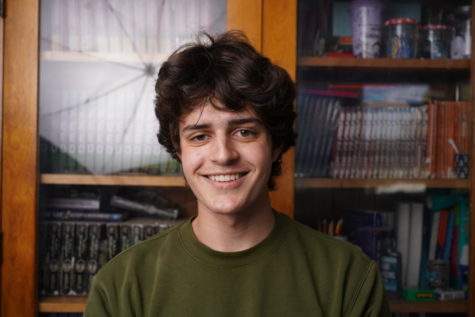
Ben is a senior at GHS and is returning to the Gillnetter this year. He enjoys running, listening to music, and doing crosswords. When he finds himself...

Cyan Clements is a senior at GHS and is a second year writer for The Gillnetter. She is a honors student and takes pride in being the resident artist for...

